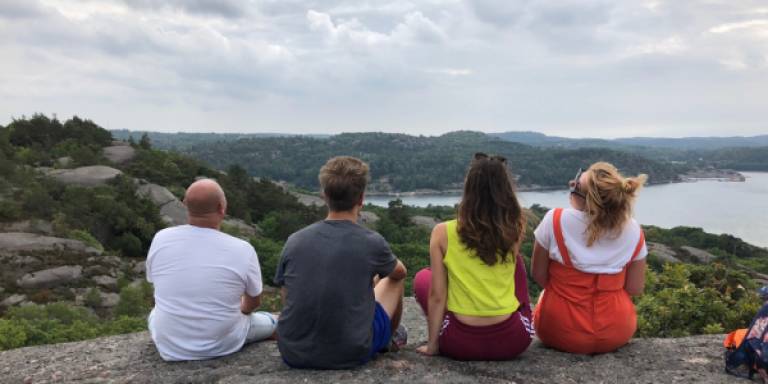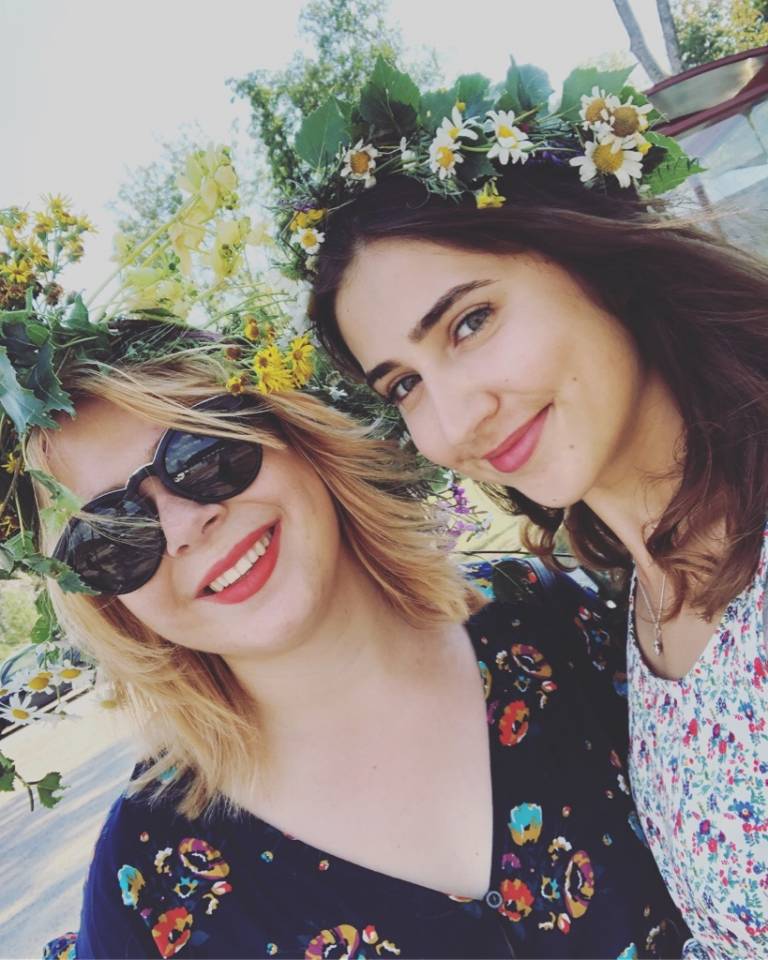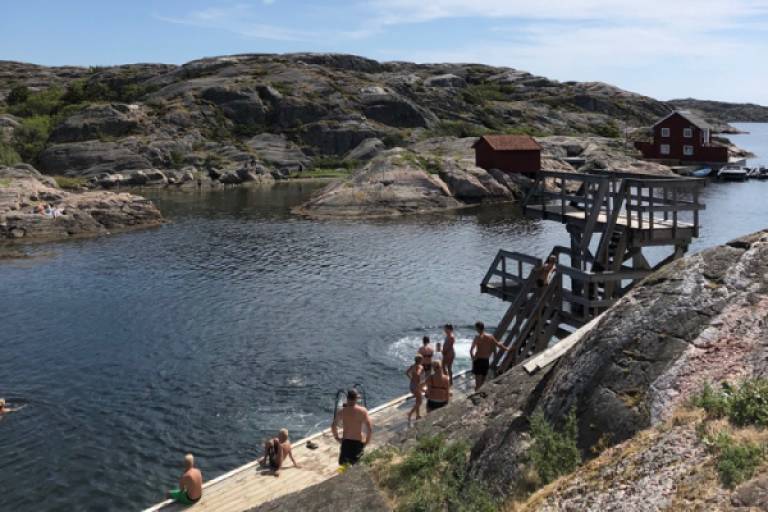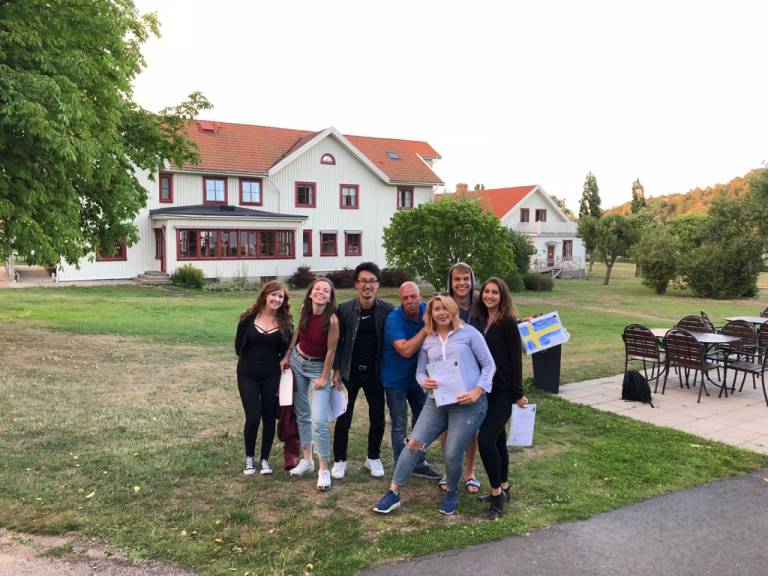Swedish Course at Billströmska Folkhögskolan
15 March 2019
In preparation for her year abroad, Gabriela Sachetti undertook a Swedish course at Billströmska Folkhögskolan. Read about her experiences as she experienced Swedish language, culture and nature this summer.

Gabriela Sachetti, SELCS
The programme was based on a language course, with the teaching in Swedish. However, the lessons were relaxed and informal, which was extremely helpful. We were placed in three groups and there were three teachers, so the lessons took place in rotation. Every lesson took 80 minutes and we had two or three lessons per day, with “fika” (Swedish concept of having a cup of coffee/tea and little something to eat) and lunch in between, which made the schedule seem not rushed but perfectly organised.
After breakfast we met with the teachers and listened to the announcements of the day. The dinner was at 17:00 so before that we either had another activity altogether – such as Bränball (a game similar to rounders), kubb (a Swedish game), quizzes, or just free time.
On the course, we had to write three essays – one for each teacher. For the first essay we were divided into groups of three and had to write about one person, while the other person was writing about us: “A place that warms ….’s heart” (the expression sounds better in Swedish!), preceded by an ‘interview’. The second essay was about a dream we had – or pure imaginative, and a photo attached to it. While the second essay was entertaining, the third one was based on a book recension.
One of the most prominent activities was the “study project”, in which we were divided in groups of six and had a little excursion to a given place, for example: a retirement home, a dog shelter, a church, a cultural centre. Our group had to visit the mayor of the municipality who was more than glad to talk to us about the island, the opportunities and threats of the place, the companies/job, political involvement in a comparative perspective not only with Sweden as a whole but with other municipalities in Europe.

Benefits:
First and foremost, the course contributed to the fluency of my Swedish. In terms of career aspiration, it inspired me with the possibility of becoming a language teacher as I had the chance to explore the techniques used by the teachers. However, the main inspiration that the course enriched me with is based on politics and relations.
Since the island the course took place on is located near the city I am doing my year abroad, I got the chance to explore the city in the trip that we had in Göteborg, as well as the archipelago (such as Marstrand island).

A personal highlight is represented by meeting people, such as a representative from the Swedish Institute (that offered the stipendium), the teachers, the locals and other students with whom I share the same passions regarding the Swedish language and culture. Moreover, we were given a presentation by the author from Göteborg Jessica Schiefauer, who won the August prize two times. Her speech was very inspiring and she was very tolerant about the possibility of translating her books, which represents a prospect for me. Therefore, these connections are useful for future interactions.
Another highlight was the time spent with the other students, how we organized our free time and took all the possible chances for living every moment: we would take bikes (provided by the school) and cycle around the island go by the sea and jump into the water, or just wander in the forest and climb the mountains – a wonderful meeting not only with the Swedish culture but the Swedish nature.

I arrived the night before the beginning of the course, therefore I stayed one night in Göteborg and had to take the bus the following day. However, I noticed too late that the last bus in the first part of the day was leaving soon so I took an uber taxi and tried to get to the next bus stop. When the bus came, it was full and did not stop – so I had to change buses. The solution came when I calmed down and asked people how to get to the place.
My return flight was one day after the end of the course, therefore I found myself in the situation of not having accommodation for one night, as the time coincided with a festival. As a friend from UCL knew about my situation, she asked her Swedish friend who lives in Göteborg to help me, which he did. Not only am I thankful for having wonderful people around me, but now I know a local who showed me around and enriched me with all the necessary knowledge about this place.
What you’d say to other students considering a short-term global opportunity:
I would excitedly recommend as I honestly cannot think of any negative side about the short-term opportunities! I truly think that the combination of studying, meeting new people, explore a new place and having great activities is the best way to spend a holiday: it is a step in defining as a person, a little help in finding out what you would like to study or do in the future and an unique experience.
 Close
Close

